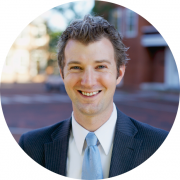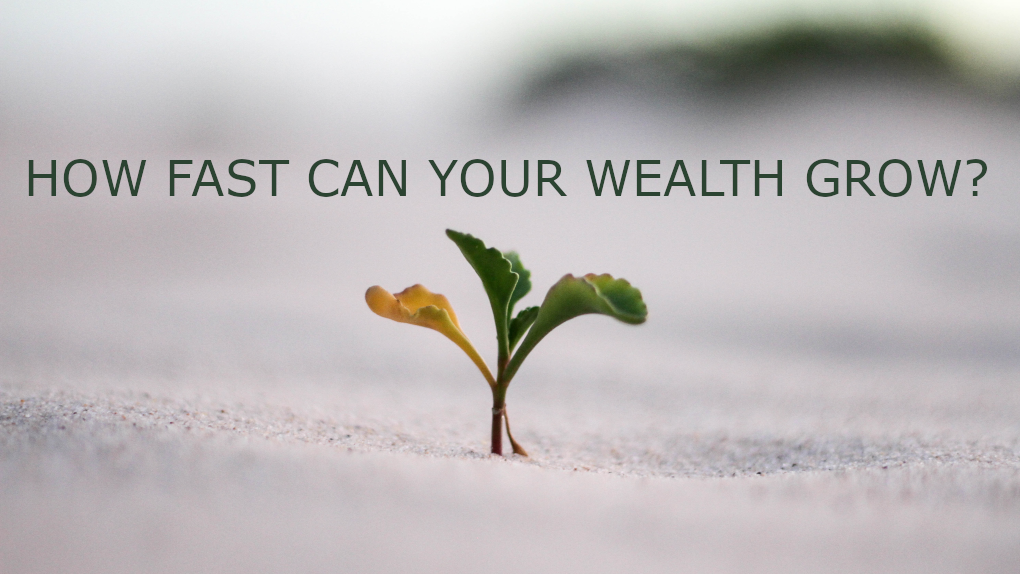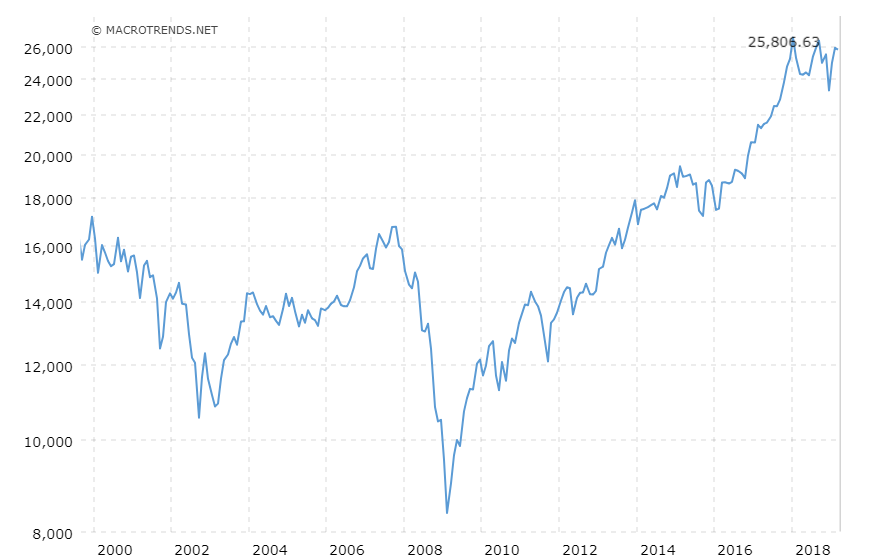Focus On Compounding Your Wealth
Topic: BASIC KNOWLEDGE, RETURNS • By: Michael Lewis • 01-30-2019
Wealth creation boils down to one thing:
COMPOUNDING YOUR MONEY
Take the example of a simple 15% annual return on $50,000 over a decade.
| Year | Value | Annual Growth |
| 2019 | $ 50,000 | $ – |
| 2020 | $ 57,500 | $ 7,500 |
| 2021 | $ 66,125 | $ 8,625 |
| 2022 | $ 76,044 | $ 9,919 |
| 2023 | $ 87,450 | $ 11,407 |
| 2024 | $ 100,568 | $ 13,118 |
| 2025 | $ 115,653 | $ 15,085 |
| 2026 | $ 133,001 | $ 17,348 |
| 2027 | $ 152,951 | $ 19,950 |
| 2028 | $ 175,894 | $ 22,943 |
| 2029 | $ 202,278 | $ 26,384 |
The investment quadruples in a decade. More importantly, a passive investment of $50,000 grown by 15% annually will generate an annual return of $26,384 in ten years because of compounding. Anyone who has ever read Benjamin Graham’s seminal book, The Intelligent Investor, or watched the recent documentary “Becoming Warren Buffett” understands that compounding is the key to turning your savings into an early retirement.
Three Simple Rules to Maximize Wealth Growth With Compounding
1. Invest with a Strategy:
Think of investing in a mutual fund, traditional IRA, or ETF as buying a bag of little investments. Every dollar invested might represent a fraction of a penny interest in Walmart, Apple, bonds, money market assets, and lots of different securities. Besides being opaque and rife with middlemen siphoning returns, these investments float along following market trends. The investment might generate favorable returns, but it is difficult to plan what they might be whenever you decide to sell.
The better path is to invest in an opportunity with specific projected returns over a finite period of time. As the investment generates returns, you can reinvest in other opportunities, and keep compounding your wealth.
2. Start Early:
Fifty thousand dollars in a savings account, CD, or other ultra-low-return “investment” is attempting to match inflation. It is not generating wealth. That’s a wasted opportunity. Returning to the above spreadsheet, in five years, that $50,000 investment could have doubled in value and be generating $13,118 annually. Looking to retirement, that $50,000 investment is worth $2.8 million in year 29 and $3.3 million in year 30. A delay of one year costs $500,000.
3. Never Lose Money:
The problem with most investments is that they track market volatility. If you are a day trader, you like volatility; but for a passive investor, volatility is terrible because it means you risk losing your hard-earned money.
Here’s the inflation-adjusted Dow Jones Industrial average since 2000 (chart courtesy of Macrotrends).
That’s a bad outcome for people who wanted to retire between 2008 and 2013 among others. Most investors want greater predictability and less volatility.
Investing in securities tied to the stock market can be like playing basic strategy at the blackjack table. Better to quit while you’re ahead (or cut your losses). But, where do you put your money when it’s time to quit the markets? Without constant re-investing, you cannot maximize compounding of your wealth.
This is why we founded Real Growth Capital.
We founded Real Growth Capital to build and protect our own wealth. By inviting investors to join us, we are able to acquire more assets, acquire bigger assets, and grow our wealth and our investors’ wealth faster and with less risk.
I view the stock market as generally and unpredictably cyclical. That’s a problem for planning wealth creation and predictably reaching retirement milestones.
The average investor buys complicated packages of securities with vague return projections and no real idea how those projections are calculated. We sponsor projects where we see an opportunity to create value in markets we know. This means projected returns based on fundamentals instead of financial engineering. It also means that our investors can see the fruits of our underwriting before deciding to partner with us.
As I write this article, the clouds on the horizon grow ever darker for the financial markets. We are continuing to search for multifamily, storage, and specific commercial opportunities that offer a hedge against the upcoming market crash.
If you are interested in learning about our investment opportunities as they become available, sign up to join our investor’s group.

W. Michael Lewis
Michael Lewis is a licensed attorney with more than a decade of experience advising clients before founding Real Growth Capital. His expertise includes real estate investing, financial analysis, asset management, business strategy, and negotiation.







